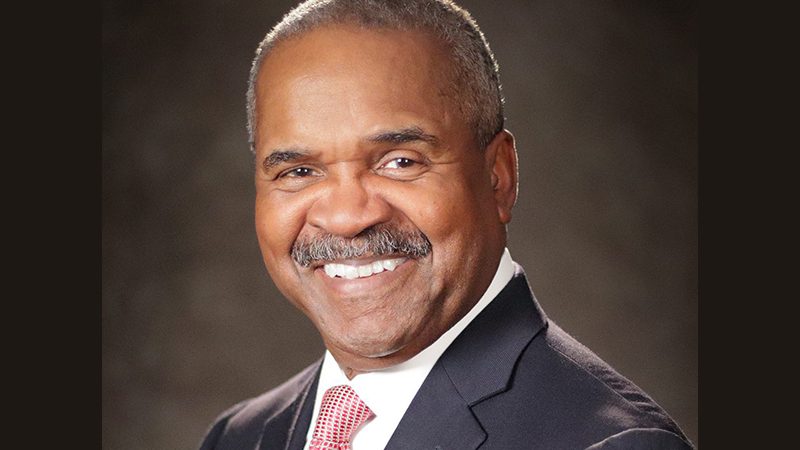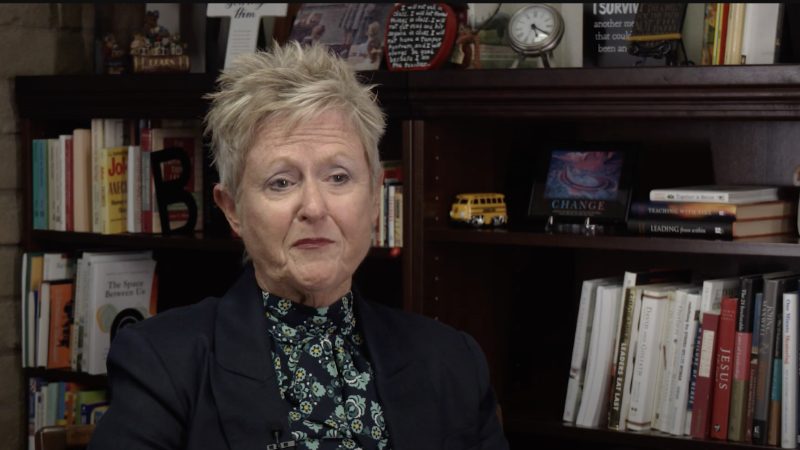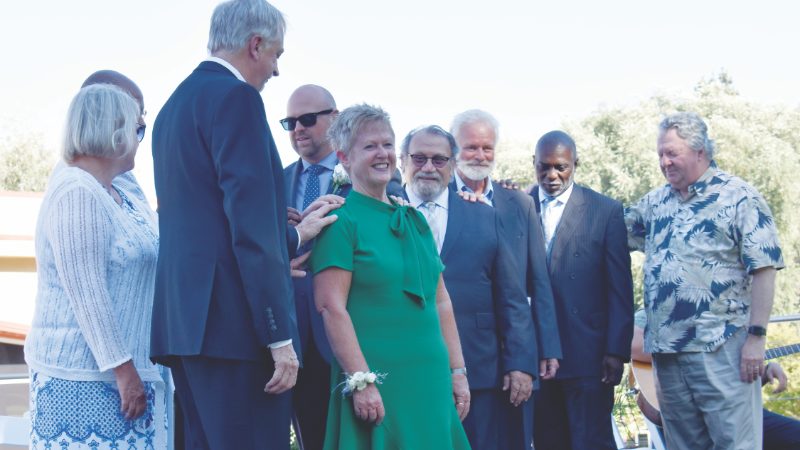By J. H. Waggoner

We find two questions upon our table which are so nearly related that we answer them together.
1. “Is there any evidence that women may not partake of the Lord’s supper?”
We give this as we received it. We should more naturally inquire, Is there any evidence that women may partake of the Lord’s supper?
There is no special or explicit statement to that effect. Nor is there any explicit statement that minors may partake of the Lord’s supper. But there is evidence that it was the duty of the apostles to go into all the world and preach the gospel to every creature, and to teach them that believed the gospel to observe certain things that were commanded them. And there is direct evidence that whosoever believes in Christ, or is a Christian, may partake of the Lord’s supper. The conclusion is, then, evidence that women and minors may partake of the Lord’s supper, unless it can be shown that women and minors may not believe and obey the gospel. As no one would affirm this, the question is settled beyond dispute.
There is another method of arriving at the same conclusion, and one which involves important considerations. The ordinance of circumcision was given to the patriarchs and to Israel which, from its very nature, must be confined to male children. By birth the male children of Jewish parents were entitled to the privileges of this rite, which was the seal of the covenant. Others might obtain it by complying with certain conditions. But no others were entitled to it by their birth.
Circumcision has its antitype. It is now of the heart; it is the Spirit of God in the heart. “Ye were sealed with that Holy Spirit of promise.” As their circumcision proved their relation to Abraham in that covenant, so does ours, the possession of the Spirit, prove our relation to Christ. “If any man have not the Spirit of Christ he is none of his.”
The promise made to Abraham is yet waiting for fulfillment. Stephen proved that it remains to be fulfilled. Paul, both in Acts 27, and Heb. 6 and 11, showed that the promise made of God to the fathers was the foundation of his hope. “If ye be Christ’s, then are ye Abraham’s seed, and heirs according to the promise.” Gal. 3:29. Not by birth of national distinctions, not by a sign which the males only could receive, but by faith—by a rule where “there is neither Jew nor Greek, there is neither bond nor free, there is neither male nor female; for ye are all one in Christ Jesus.” Gal. 3:28. This proves that the privileges of one class are the privileges of each and every class, unless there are specific restrictions. But no such exist in regard to the Lord’s supper. Hence, females, Gentiles, bondsmen, all who accept Christ and have his Spirit may alike partake of this privilege. And this leads to the next question, and to consider how far restrictions extend on another point.
2. “Is it right for women to speak in meeting?” Certain texts are quoted to prove the negative, and apparently, they do prove it. Do they really?
A text of scripture may not be taken in all its possible meanings, but only in its actual meaning. This is obvious; for it is often possible to draw from a text that which may be shown to be foreign to the actual intention of the writer. We are not at liberty to draw a meaning from any text which makes it conflict with any other text, and especially of the same writer. And, secondly, we may not draw a meaning from a text which puts it in contradiction with a known fact.
In 1 Cor. 11:5, Paul says: “But every woman that prayeth or prophesieth with her head uncovered, dishonoreth her head.” Again in chapter 14:3 he says, “But he that prophesieth speaketh unto men to edification, and exhortation, and comfort.” But if women were never to “speak unto men to edification, and exhortation, and comfort,” why did he say they should not speak thus or prophesy with uncovered heads? Why give a direction as to the manner in which they were to exhort, or comfort, or edify the brethren, if he meant to forbid it altogether? Granted that it is quite possible to draw such a meaning from his words in chapter 14, and to Timothy, can that be the actual meaning, seeing it is entirely inconsistent with his directions in the text noticed? It cannot be that he intended to utterly forbid in one text that which he allows in another text.
We notice, then the connection of the two texts which seem to involve a difficulty.
1 Cor. 14:29-35. “Let the prophets speak two or three, and let the other judge. If any thing be revealed to another that sitteth by, let the first hold his peace. For ye may all prophesy one by one, that all may learn, and all may be comforted. And the spirits of the prophets are subject to the prophets. For God is not the author of confusion, but of peace, as in all churches of the saints. Let your women keep silence in the churches; for it is not permitted unto them to speak; but they are commanded to be under obedience, as also saith the law. And if they will learn any thing, let them ask their husbands at home; for it is a shame for women to speak in the church.”
It appears that something, or speaking of some kind, was herein permitted to the men which was not permitted to the women. But we have seen, and shall notice further, that they were allowed to pray and to prophesy, but under certain restrictions. We cannot allow that this text contradicts that. If this text is likewise restrictive—if it permits certain exercises, or, perhaps, disputations, to the men which it prohibits to the women, then there is no conflict between the two. Dr. Clarke gives us the following information: “It is evidence from the context that the apostle refers here to asking questions, and what we call dictating, in the assemblies. It was permitted to any man to ask questions, to object, altercate, attempt to refute, &c., in the synagogue, but this liberty was not allowed to any woman.”
Such being the custom of the times, the propriety of the order will at once be seen, for it would be unseemly for a women [sic] to engage in such a debate of words as was likely to occur. Paul was specially guarding against confusion. But this would not interfere with the permission to women to pray or to prophesy, if it were done to edification and comfort, and if the decorum which belongs to the place and occasion were preserved, and the women regarded that modest reserve which is such an adornment of the sex.
And this appears yet more evidence from the explanatory declaration in his words to Timothy, “But I suffer not a woman to teach, not to usurp authority over the man, but to be in silence.” 1 Tim. 2:12. The divine arrangement, even from the beginning, is this, that the man is the head of the woman. Every relation is disregarded or abused in this lawless age. But the Scriptures always maintain this order in the family relation. “For the husband is the head of the wife, even as Christ is the head of the church.” Eph. 5:23. Man is entitled to certain privileges which are not given to woman; and he is subjected to some duties and burdens from which the woman is exempt. A woman may pray, prophesy, exhort, and comfort the church, but she cannot occupy the position of a pastor or a ruling elder. This would be looked upon as usurping authority over the man, which is here prohibited.
Thus it appears from a harmony of Paul’s words that his orders were restrictive, but not prohibitory. He certainly did not prohibit that which he plainly permitted.
IF THIS IS NOT PROOF THAT PAUL DID NOT INTEND TO FORBID WOMEN TAKING PART IN PUBLIC WORSHIP, THEN WE MUST CONFESS THAT WE ARE SLOW TO COMPREHEND PROOF.
More conclusive than this, if possible, is this, that to construe his language into a prohibition is to bring him in conflict with known and acknowledged facts. Woman’s relation to the work of God has not materially changed throughout the dispensations. Miriam, the sister of Aaron and Moses was a prophetess. In all instances recorded in the Old Testament it appears that God called women to this important office when the condition of the people was especially trying, or in time of great declension or disaster. We should naturally suppose that individuals of the stronger sex would uniformly be chosen at such a time, but God does not see as man sees. Those women whom the Lord chose to occupy this important place, have shown themselves peculiarly fitted to fill it, and often even in striking contrast with public men of their own time.
The children of Israel were “mightily oppressed;” “they chose new gods;” war was in their gates, though there was not a shield or spear seen among forty thousands in Israel. Judges 4:34; 5:7, 8. Then Deborah was raised up, who was not only a prophetess, but a judge in Israel. Barak, whose name was handed down by Paul (Heb. 11), among those of the faithful worthies, refused to go out to meet the hosts of Sisera unless Deborah went with him; so strong was his confidence in the Lord’s appointment.
When the house of God was in desolation, and the law had ceased in Israel, Huldah was found a prophetess. King Josiah sought unto her for instruction, to learn how they might avert the wrath of God which was kindled against Israel.
At the time of the birth of our Saviour Anna was a prophetess, and she “spake of him to all them that looked for redemption in Israel.” Luke 2:36-38.
Did the change of dispensation work any change in the divine plan in respect to this gift? Not to its withdrawal; but it insured that the bestowal of the gift should be still more general. The promise was made thus:—“Your sons and your daughters shall prophesy.” “And on my servants and on my handmaidens will I pour out in those days of my Spirit, and they shall prophesy.”
The fulfillment was according to the promise. There were four prophetesses in one family—that of Philip. They had the gift, and they exercised it—they “did prophesy.” Some would not put such a construction upon the words of Paul as to have closed the mouths of these handmaidens of the Lord, who were specially endowed by his Spirit. But Paul gave no sanction to such a construction; so far from forbidding the exercise of this gift by women, he pointed out how they should appear when they prophesied. Paul was not so presumptuous as to interfere with the fulfillment of the prophecy of Joel, or to frustrate the gifts and callings of God in the gospel.
If this is not proof that Paul did not intend to forbid women taking part in public worship, then we must confess that we are slow to comprehend proof.
Neither do the words of Paul confine the labors of women to the act of prophesying alone. He refers to the prayers, and also speaks of certain women who “labored in the Lord,” an expression which could only refer to the work of the gospel. He also, in remarking on the work of the prophets, speaks of edification, exhortation, and comfort. This “labor in the Lord,” with prayer, comprises all the duties of public worship. Not all the duties of business meetings, which were probably conducted by men, or all the duties of ruling elders, and pastors, compare 1 Tim. 5:17, with 2:12, but all that pertain to exercises purely religious. We sincerely believe that, according to the Scriptures, women, as a right may, and as a duty ought to, engage in these exercises.
_____________________________
Adventist pioneer J.H. Waggoner was an editor, theologian, author, and advocate for health reform and religious liberty.





